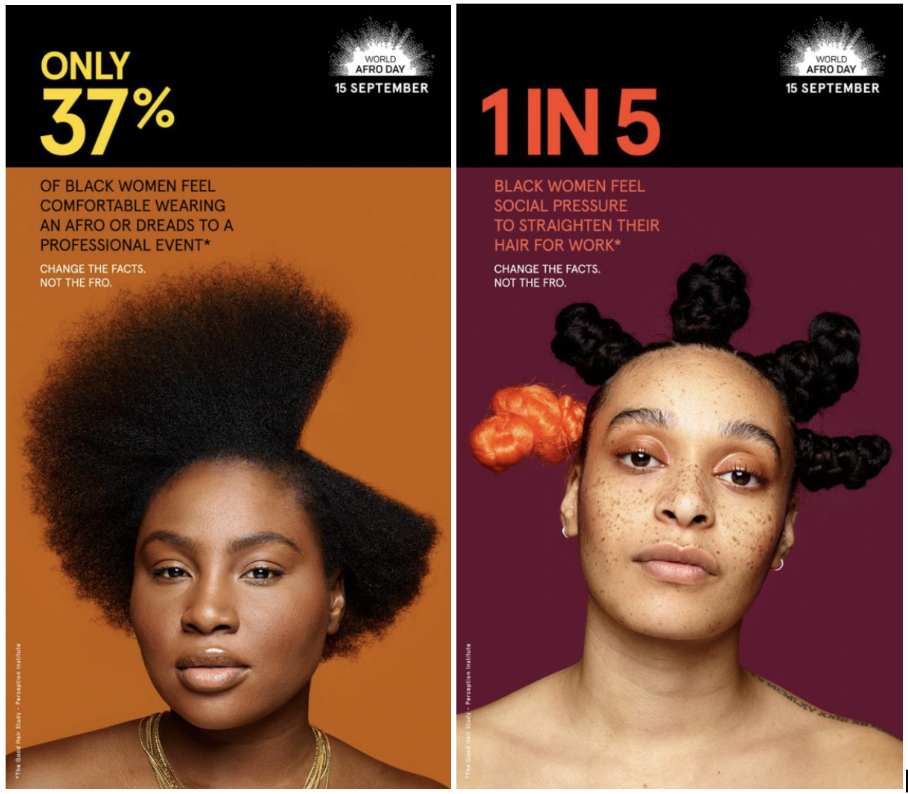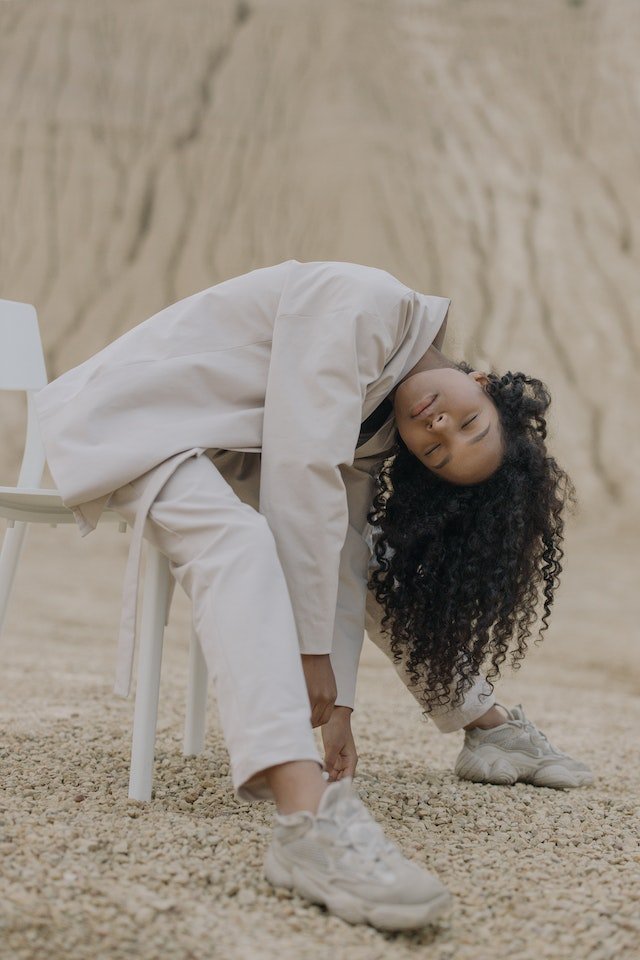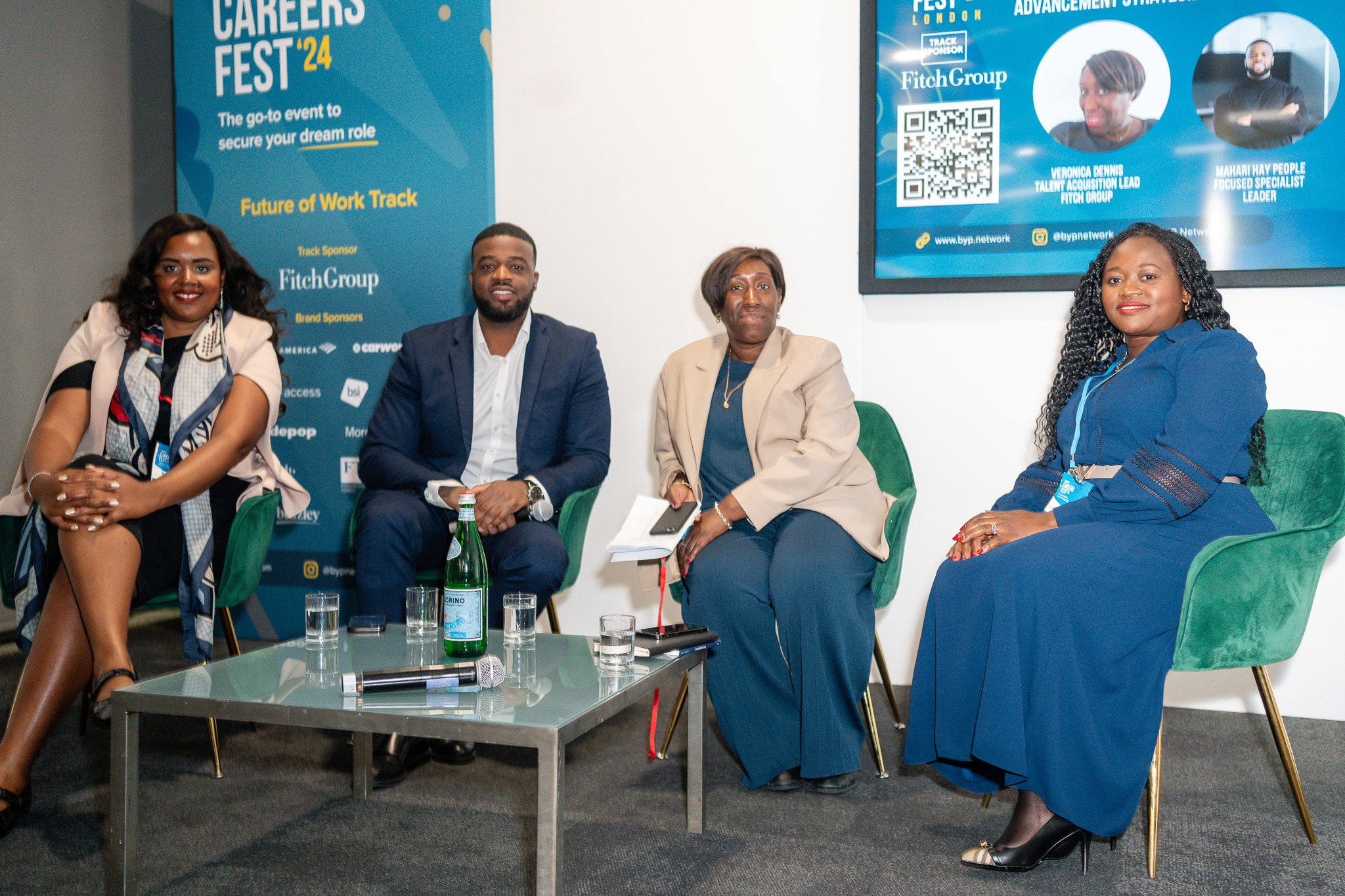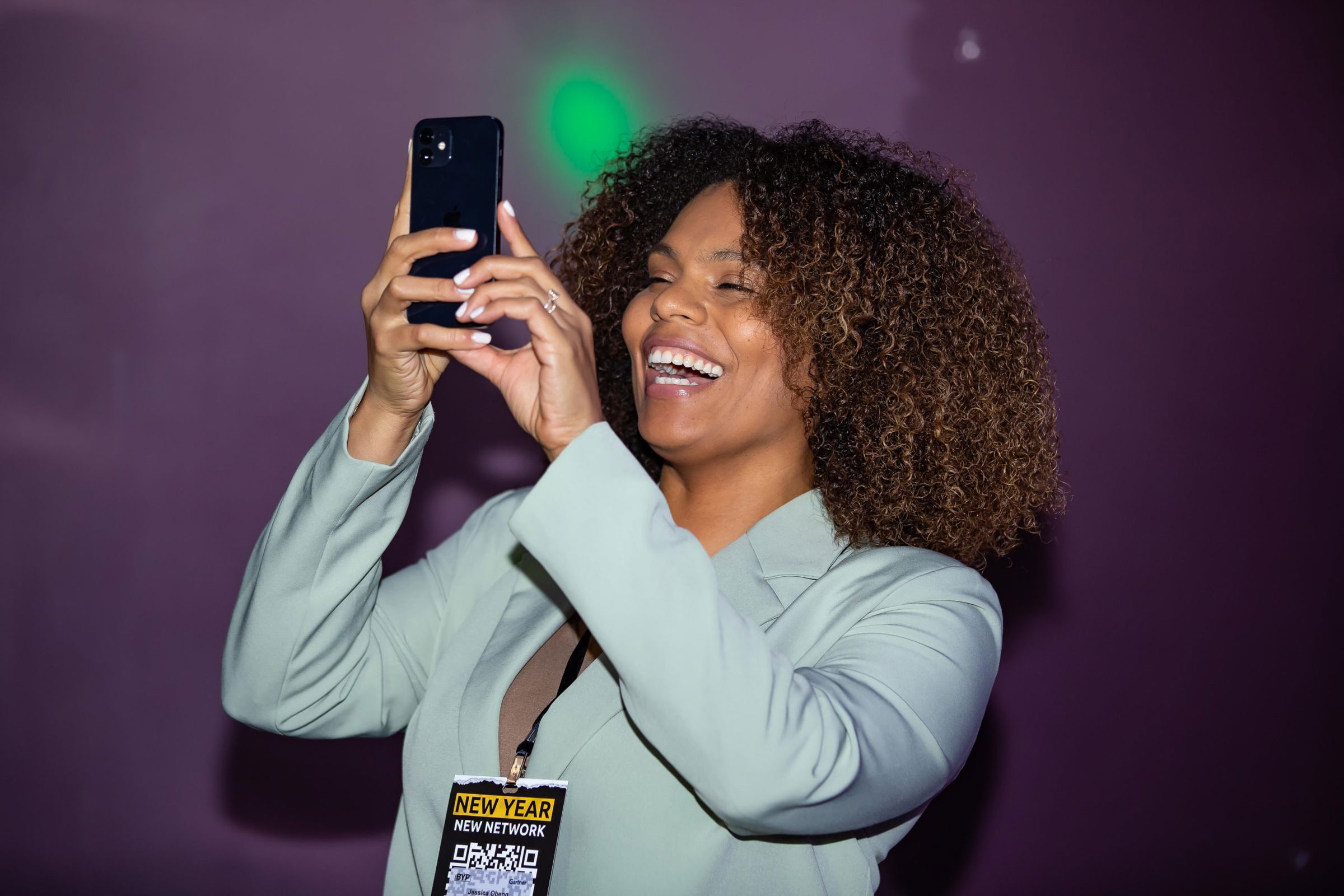Black hair is beautiful, unique, and versatile. From curly coils to twist-outs and more, textured strands are a way for Black people to reconnect with their heritage and culture. Thankfully, the modern natural hair movement placed textured hair at the forefront, calling for more inclusiveness in the beauty industry and beyond.
Whilst the natural movement welcomed a swarm of hair influencers, styles, and brands, it also highlighted long standing prejudices and stigmas associated with textured hair. For far too long, biases against natural hairstyles have interrupted the progress of Black professionals, particularly women.
Biases against Black hairstyles
Deemed unprofessional, natural Black hairstyles, such as braids, afros, and locks, have been quietly shunned, forcing Black professionals to straighten their natural locks to fit into non-Black work environments. In fact, one in four Black adults in the UK have been sent home from work or faced disciplinary action as a result of wearing their hair in a natural or protected style.
Despite the Equalities Act, which protects individuals against this, 72 percent of Black people between 18-24 say they experience microaggressions because of it. In fact, the younger generations often feel the brunt of the discrimination. Across classrooms in the UK, Black students have faced suspension and other disciplinary actions for sporting their natural roots. This undoubtedly breeds early insecurities and feelings of outsiderism within Black individuals.
Changing the Status Quo
The good news is that the cultural consciousness is shifting to create a world where all textures are welcomed and valued. One example is Dove’s collaboration with Halo Collective to change the UK’s legislation and policies regarding race-based hair discrimination. More actions include the Equality and Human Rights Commission urging UK schools to refrain from penalising students based on their hair texture.
In 2018, Ogilvy, Wavemaker and World Afro Day pioneered the first-ever campaign around hair biases, in an awareness campaign called ‘Change the Facts, Not the Fro’. It focussed on combatting how society perceives women’s Afro hair, illustrated with startling statistics taken from The Good Hair Study. It emphasised the importance of celebrating the glory of natural Black hair and empowering people to have the freedom to wear their hair however they choose.

And having that simple freedom can really have an empowering effect. In our 2022 BYP Leadership Conference’s ‘Power Hour’ panel discussion, Natasha Shotunde, Co-founder and Chair of the Black Barristers’ Network, spoke about the renewed confidence and relief she experienced when she started wearing her natural hair at work. After a long time of feeling uncomfortable and wearing braids and wigs, she eventually found “the natural hair journey helped me be and become myself.”
The tides are changing, and we’re all for it. Continue the conversation for change, and join one of our BY-Peers groups. Connect with like-minded professionals and create a community around growth and positive actions.
You can also apply for a Black professional Mentor in our BYP Mentorship programme. Your hand-picked Mentor can help guide you on how to be your best authentic self at work and how to tackle any discrimination that may arise.






